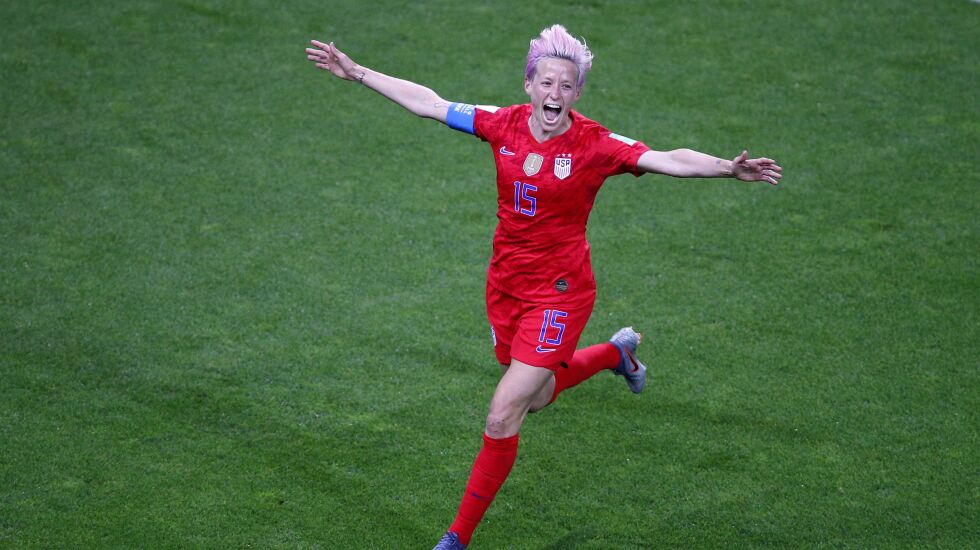
For some time, the discussion surrounding the transitional state of one of American sports’ more formidable teams — the U.S. women’s national soccer team — has been nothing more than chatter.
Injuries ahead of the World Cup and the youth on one of the most inexperienced squads the U.S. has fielded for the tournament — 14 of the 23 rostered players had no World Cup experience — were undeniable signals of the impending changes. Nothing truly made that official like Megan Rapinoe’s retirement announcement.
“It’s with a really deep sense of peace and gratitude and excitement that I share with you guys this is going to be my last World Cup and my last NWSL season,” Rapinoe shared July 8.
For the nearly three months that followed — which included the USWNT’s unceremonious exit from the World Cup after losing to Sweden on penalty kicks (5-4) after drawing in regulation — the inevitable felt avoidable.
But Rapinoe’s retirement, in addition to that of Julie Ertz, who announced Aug. 31 that she also would be retiring, makes the national team’s new era official. For those outside of that locker room whose lives were indelibly impacted by Rapinoe, there’s a feeling that the torch is being passed to them, too.
Rapinoe’s final USWNT match Sunday at Soldier Field against South Africa will be one of the last times she uses a soccer field as her stage to send a message about LGBTQIA+ rights. Her news conference will be one of the final times she takes a question about a game and turns it into an opportunity to denounce racism, sexism or any form of discrimination.
After the match, Rapinoe will have a handful of regular-season matches left with her club team, OL Reign, including a send-off match Oct. 6 in Seattle. She undoubtedly will be an immovable force in her advocacy long after her soccer career ends this fall because Rapinoe’s legacy and impact are far greater than the sport she played.
Her retirement is a message to her fans that, like the national team, they, too, can succeed without her, and her advocacy is now their responsibility to live up to.
That’s the thing about players like Rapinoe and Ertz. They weren’t just building a behemoth of a sports institution, helping lead the USWNT to a record four World Cup titles. Their words and actions helped spur change across the globe.
Their fight for equal pay, resulting in a landmark agreement between the U.S. Soccer Federation and the -USWNT, demonstrated equity is possible in sports and beyond.
Rapinoe’s professional club career began in Chicago after the Red Stars drafted her with the second overall pick in the 2009 Women’s Professional Soccer draft for the league’s inaugural season. She played in 38 games for the club before playing for the Philadelphia Independence, Seattle Sounders and eventually OL Reign, where she would spend her entire NWSL career.
Rapinoe got her first cap with the national team on July 23, 2006, and scored her first goal on Oct. 1. She ranks in the top 10 in USWNT goals and assists and has a collection of the sport’s most prestigious awards, including the World Cup’s Golden Ball and Golden Boot and the France Football Ballon d’Or.
Ertz’s club career also began in Chicago when she was drafted by the Red Stars with the third overall pick in the 2014 NWSL draft. She earned her first of 123 USWNT appearances on Feb. 9, 2013.
Ertz played her final match Thursday in Cincinnati. After the -USWNT’s 3-0 victory over South Africa, she took the mic onto the pitch and shared a message through tears.
“To any young girl that’s out there that dreams to be here, it’s worth it,” Ertz said. “Every part of it.”
On Sunday, it will be Chicago’s turn to bid farewell to Rapinoe.







